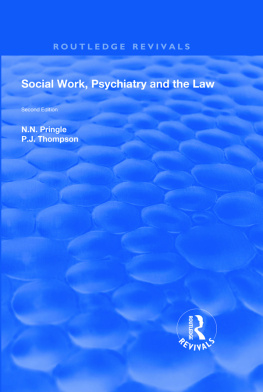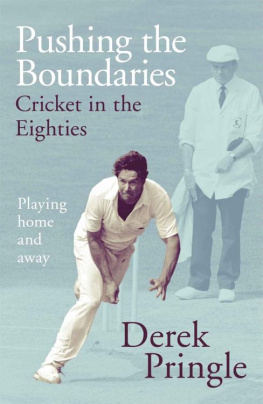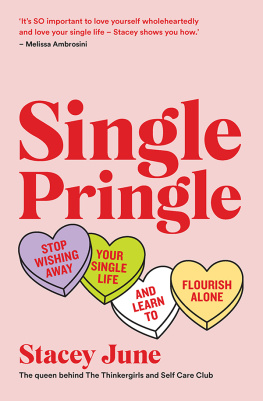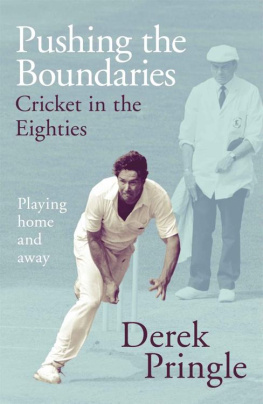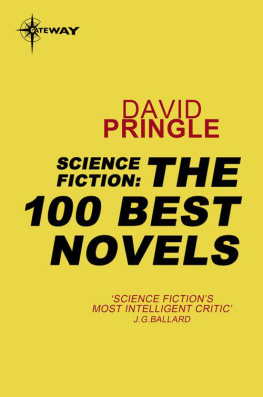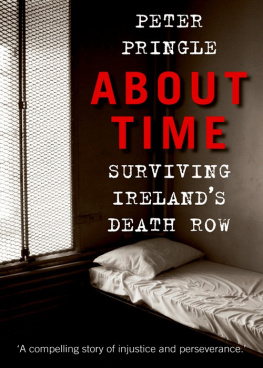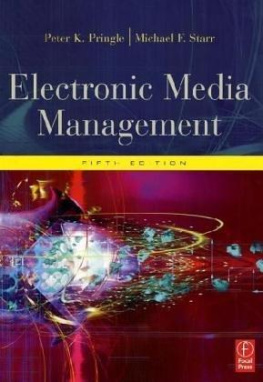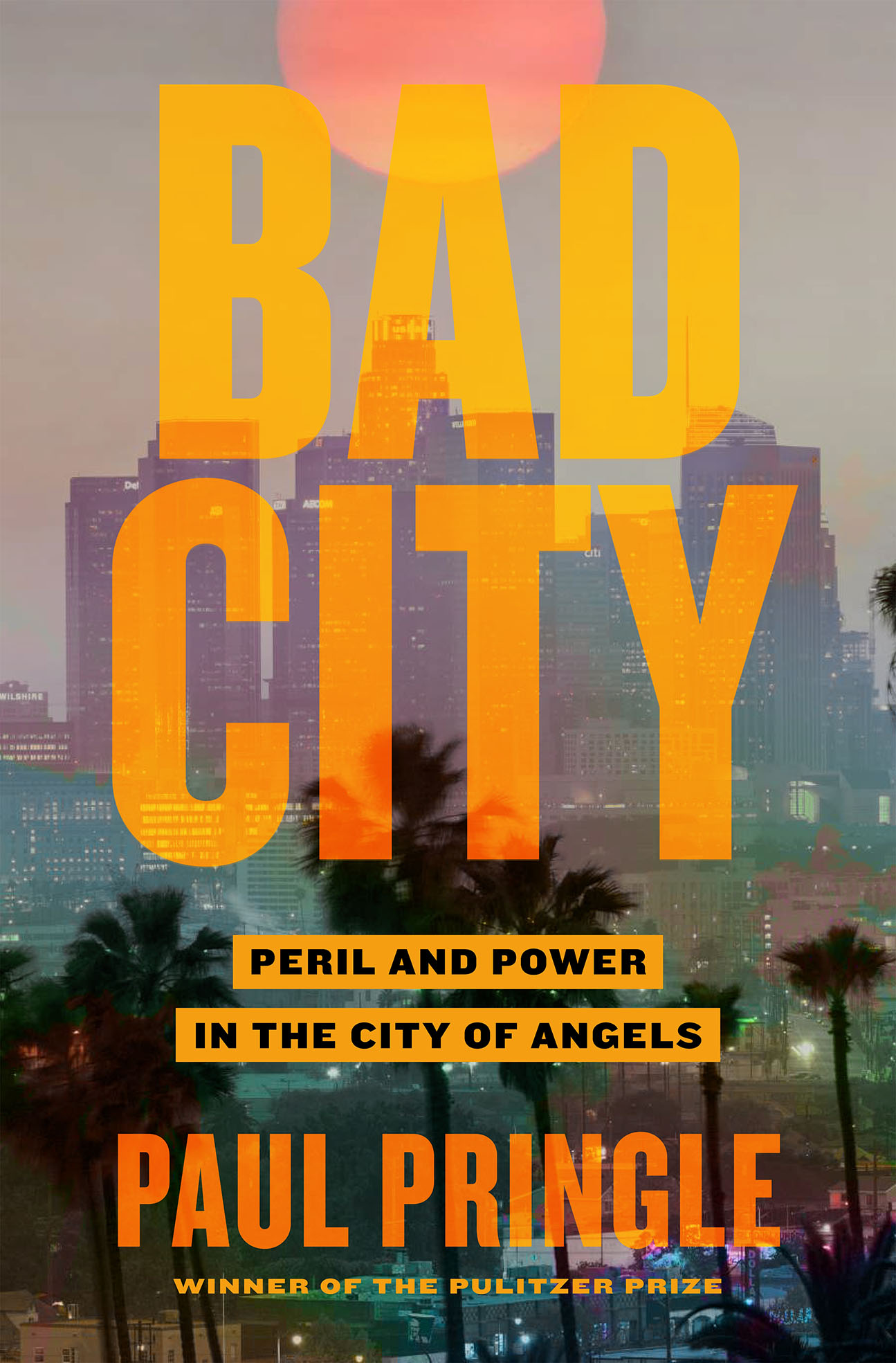Contents
Guide
Pagebreaks of the print version

The author and publisher have provided this e-book to you for your personal use only. You may not make this e-book publicly available in any way. Copyright infringement is against the law. If you believe the copy of this e-book you are reading infringes on the authors copyright, please notify the publisher at: us.macmillanusa.com/piracy.
For Joanna, Rachel, and Mariah
The tip about the dean of the University of Southern Californias medical school hinted at something so salacious, so depraved, so outrageous, that it seemed too good to be true. Or too awful, if you werent a journalist.
It came to the Los Angeles Times through a staff photographer, Ricardo DeAratanha. He got the tip at a house party, purely by chance, and emailed it the next day to a colleague. DeAratanha wrote, I came across someone last night, who witnessed an apparent coverup involving the Dean of the School of Medicine at USC. It involved lots of drugs and a half dressed unconscious young girl, in the deans hotel room. He went on to say that the tipster would have more details.
The day after that, another colleague forwarded Ricardos email to me, writing, Ricardo has been trying to find someone to drop this tip on. Everybodys been a little skittish about it. I told him youre the one who would know how to handle it.
More often than not, the most tantalizing tips become a fools errand, a fruitless prospecting for truth from rumors and exaggerations and outright fabrications. Sometimes they are anonymous, sometimes not. The anonymous ones might arrive from an encrypted email account or a hand-scrawled letter with no return address. A large number of these tips, dispiritingly so, are about racist cops and thieving politicians and sexually abusive bosses. Others are meant to exact revenge against business partners in ventures gone south. Unfaithful spouses, especially if theyre famous, are a favorite target. So are the lawyers and judges who handled the resulting divorces. It gets even worse when the custody of children is in play.
And yet no matter how colorful they are in the details, no matter how important the story they promise to tell might be, the tips that are particularly over-the-top usually lead nowhere.
But not this one.
This tip was about Dr. Carmen Puliafito, a Harvard-trained eye surgeon, inventor, and big-dollar rainmaker who straddled the highest reaches of the medical world and academia. He was a wizard in the operating room and an innovator in the laboratory. Puliafito estimated that he raised $1 billion for USC. He brought a brainy refinement to the charity circuit of Hollywood and Beverly Hills, mixing as easily with designer-dressed movie stars as he did with the residents in lab coats at the Keck School of Medicine. But as luridly improbable as it seemed at first, the tip about Puliafito not only was on the mark, it merely scratched the surface. And what was revealed beneath that surface was a deep vein of corruption and betrayal that webbed through the Los Angeles establishment and corroded some of the citys most essential institutions, my own newspaper included.
The scandals that followed led to the downfall of powerful men. But it was a close call, a near miss, and many innocent and vulnerable people were hurt along the way. As of this writing, not all of them had gotten the justice they deserved.
A fog scented by canyon pines greeted Devon Khan when he stepped from his front door. It was early in the morning of March 4, 2016, the day of the overdose, and Khan was on his way to work. The low sun lighting the ridges of the San Gabriels promised there would be no rain. The mountains provided a painterly backdrop to the north side of Pasadena, where Khan lived with his wife and their ten-year-old daughter. He was forty-four years old and the reservations supervisor at the Hotel Constance, a boutique inn on the edge of Pasadenas central business district. A veteran of the hotel industry, Khan had bounced from property to property as better opportunities presented themselves. He had worked at the old Ritz-Carlton in Pasadena and its successor, the Langham Huntington. Khan did stints at the Mondrian and Sunset Tower, the West Hollywood haunts of the wealthy and celebrated. Hospitality at this level was a demanding and humbling gig. The default expectation was that every need, wish, whim, and mood of the guests will be catered to, and must be abided with a smile. Even for the guests who were out of line, deference and discretion remained the watchwords. Khan understood that. Polite, soft-spoken, eager to please, and handsome, with a striking resemblance to Los Angeles Laker Rick Fox, he considered himself an excellent fit for the business.
But only to a point. There were limits to what Khan would tolerate to keep his job.
On this Friday morning, he drove the usual way to the Constance, a two-mile jaunt past the palms and tall conifers on Hill Avenue. The avenue ran surveyor-straight from the more affordable neighborhoods on the north end, with their auto body shops and nail salons, south toward the domains of high-walled estates with lawns as broad as meadows. Pasadena was an old-money enclave of L.A. The fortunes that had built it came from the early railroads and banks and land developments, not the movie riches that greened Beverly Hills. Halfway along the drive on Hill Avenue sat the 110-year-old clapboard house where Khan and his late mother had lived for a while, when the structure was a womens shelter. Khan was a middle schooler at the time, and his mother was a crack cocaine addict. One of her principal dealers was her father. Khans grandfather was a charmer who drove a Cadillac convertible and took a special liking to him, a sentiment Khan could never return.
The family was from Kentucky, by way of Ohio and Michigan, and Khans mother had moved with him and his older brother to L.A. in hopes of a fresh start. Their fathers were no longer around. Khans father was a businessman, model, and songwriter. One day in Detroit, as he walked out of a pharmacy, he was shot in the stomach on the orders of a man whose housing fraud scheme he threatened to expose. The bullet nearly killed him, and he later became schizophrenic, which confined him to a mental institution for the rest of his days. Khans mother had left him long before the shooting. She was loving and engaging and smart, and had studied social work at the University of Louisville. But drugs were her undoing, and L.A. did not change that. Seeing the house on Hill Avenue always reminded Khan of how far he had come in lifefrom the bouts of homelessness, the weeks spent sleeping on the couches of people he barely knew, the long periods of living with his mothers friends while she did another stretch in jail, and the lonely hospitalizations that came with his battle against sickle cell anemia. Khan had navigated and survived it all, and he would marvel to himself that he was a Pasadena homeowner. Four years ago, he and his German-born wife, Tanjathey had met when she was a flight attendant for Lufthansabought the house on Wesley Avenue, a tidy white bungalow boutonniered with a robust growth of bougainvillea. Tanja and their daughter loved Pasadena as much as he did.
Devon Khan was a family man who had put down roots, and he was always mindful of how much he had and how much he had to lose.
A few minutes after 7:00 A.M., he parked across the street from the Hotel Constance. With its butter-smooth arches and cast-stone friezes, the seven-story Constance was a 1926 showpiece of Mediterranean Revival architecture that fronted a corner of Colorado Boulevard, the route of the Rose Parade. Khan was the first of the Constance morning shift to arrive, as he usually was. He liked to get a jump on the overnight reservations, many of which came from the eastern time zones. Khan spent most of the hours in his office off the lobby, making sure the online reservations were processed, fielding questions about ratesthe routine tasks. Around 4:00 P.M., he was preparing to head home when he got the MODmanager on dutycall from the front desk.


